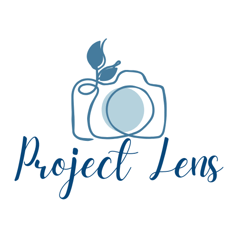

As we move into 2025, project management is evolving rapidly to keep pace with new technologies, work environments, and team expectations. Staying ahead in project management means adopting strategies that improve productivity, collaboration, and flexibility. Here are the top trends that will shape project management in 2025 and beyond.
1. AI-Powered Project Management Tools
Artificial Intelligence (AI) is no longer a buzzword—it’s actively transforming project management. AI-driven tools are now being used to streamline workflows, automate repetitive tasks, and even predict project risks before they arise. For example, AI algorithms can analyze past project data to forecast timelines or identify potential bottlenecks, enabling proactive decision-making.
Key Tools to Explore: Asana AI - https://asana.com
2. Hybrid Project Management Methodologies
Gone are the days of choosing strictly between Agile and Waterfall. In 2025, project managers will blend methodologies to create custom frameworks that fit each project's unique requirements. This hybrid approach allows teams to stay agile during execution while following structured planning phases, which is ideal for complex projects with changing requirements.
Key Benefit: Greater flexibility to adjust to both structured and flexible project requirements.
3. Focus on Well-Being and Burnout Prevention
As remote work continues, maintaining team well-being is increasingly important. In 2025, project managers will be prioritizing mental health, integrating strategies to prevent burnout, and promoting work-life balance. This trend is not only about productivity but also about long-term sustainability and employee retention. Projects now include mental health check-ins, flexible deadlines where possible, and structured downtime.
Practice Tip: Incorporate well-being discussions in project kickoff meetings and regular check-ins.
4. Increased Emphasis on Data Analytics
Data-driven decision-making continues to be crucial for project managers, and real-time data analytics tools are making this easier. In 2025, expect project management platforms to offer more advanced dashboards with real-time KPIs, progress tracking, and resource allocation. These insights allow project managers to make informed decisions quickly, enhancing overall project performance.
Popular Tools: Power BI - https://powerbi.microsoft.com), Tableau - https://tableau.com
5. Remote and Hybrid Work Optimization
Remote work is here to stay, but in 2025, companies will be refining their approach to hybrid work setups. With the aid of virtual collaboration tools, project managers are creating team dynamics that are as effective online as they are in person. This includes using advanced virtual collaboration platforms, defining clear communication protocols, and setting expectations for remote availability.
Recommended Tools: Slack - https://slack.com, Microsoft Teams -https://microsoft.com/teams
6. Incorporating Sustainability into Project Goals
More organizations are setting sustainability goals, even within their project frameworks. This could mean choosing eco-friendly suppliers, reducing waste in production processes, or implementing digital processes that minimize the use of paper and other resources. Project managers are aligning these goals with business objectives, creating an environmentally responsible image for their organizations.
Green Practices Tip: Track carbon footprint reduction as part of project KPIs.
7. Enhanced Cybersecurity Protocols
With the rise in digital collaboration and data sharing, cybersecurity has become a top priority. Project managers are now responsible for implementing stringent cybersecurity measures within project protocols, including secure data-sharing practices, educating team members on security risks, and choosing tools with strong security features. This trend is essential for protecting both project data and client trust.
Practice Tip: Establish clear security protocols for all cloud-based and collaborative tools.
Keeping up with these trends in 2025 will empower project managers to navigate complex projects and drive success within their organizations. Whether you're integrating AI, focusing on well-being, or adopting hybrid methodologies, staying ahead of these trends can help your projects thrive in an increasingly dynamic and digital world.
Check out this case study on leveraging emerging trends to transform project management
Overview: A mid-sized software development firm specializing in custom software solutions for diverse industries faced growing demands and a remote workforce. The organization aimed to enhance team efficiency, improve project forecasting, and prioritize employee well-being to retain talent in a competitive market.
Challenge: The company encountered difficulties in managing a high project volume, maintaining remote team productivity, and reducing burnout among project managers and developers. Limited data tracking and a lack of structured well-being initiatives contributed to inefficiencies, while the hybrid work environment led to communication gaps and project delays.
Solutions Implemented:
AI-Powered Tools for Forecasting and Task Automation
The company integrated Asana AI to automate routine scheduling and task assignments, which reduced time spent on manual management and enabled team members to focus on strategic decision-making. Predictive insights provided by AI-driven data analysis allowed the team to anticipate and address potential project delays proactively.
Hybrid Methodologies for Flexibility
A flexible approach was adopted, combining Agile and Waterfall methodologies. This hybrid model supported structured planning in initial stages while allowing adaptability as projects evolved, which was essential given the team's dynamic workload.
Data-Driven Decisions with Real-Time Analytics
Using Power BI, real-time dashboards were set up to monitor critical KPIs, such as project milestones, resource allocation, and team productivity. This visibility enabled project managers to make informed decisions quickly, significantly enhancing resource management and minimizing project bottlenecks.
Focus on Employee Well-Being
To address burnout, the organization launched weekly well-being check-ins and introduced flexible scheduling options, allowing team members to manage their workload around their peak productivity times. Mandatory downtime after major projects was also implemented to support recovery and maintain engagement.
Enhanced Cybersecurity Protocols
With a largely remote workforce, the company strengthened cybersecurity by investing in secure project management tools and enforcing strict data-sharing protocols. Microsoft Teams was used as the primary collaboration platform, with additional security measures, and all team members underwent cybersecurity training.
Results:
Increased Productivity: Automation and AI-based insights helped reduce manual planning time by 30%, allowing project managers to focus more on strategic activities.
Improved Employee Satisfaction: Well-being initiatives and flexible work options led to a 15% reduction in turnover, with employees reporting greater job satisfaction.
Enhanced Collaboration and Reduced Errors: Clear communication protocols for hybrid work contributed to a 20% decrease in project errors and missed updates.
Positive Environmental Impact: Incorporating sustainable practices, like going paperless, helped the company reduce its carbon footprint, supporting its corporate social responsibility (CSR) goals and enhancing its brand reputation.
By adopting emerging project management trends, this organization demonstrated how AI tools, well-being initiatives, and data-driven decision-making could transform productivity, employee satisfaction, and operational efficiency.
This case study highlights the impact of modern project management practices on both business success and workforce retention. Share your case study now!
Building a Future-Proof Project Management Strategy
To truly thrive in 2025 and beyond, businesses and project managers must take a proactive approach to integrating these trends into their workflows. This means not only adopting tools and methodologies but also fostering a culture of continuous improvement, innovation, and adaptability.
Actionable Steps to Implement These Trends
1. Conduct a Needs Assessment
Begin by evaluating your organization's current project management processes. Identify pain points such as inefficiencies, lack of collaboration, or low employee engagement. Understanding these gaps is crucial for selecting the right tools and strategies.
Checklist for Needs Assessment:
Analyze the effectiveness of current project management tools.
Gather feedback from team members about their challenges.
Evaluate the impact of current workflows on productivity and morale.
2. Invest in the Right Tools and Training
With a clear understanding of your needs, invest in tools that align with your organizational goals. AI-driven platforms, hybrid work management tools, and data analytics software can streamline operations. However, technology alone is not enough—teams must be adequately trained to maximize these tools' benefits.
Tip: Host regular workshops to ensure team members are comfortable with new tools and methodologies.
3. Foster a Culture of Flexibility
Hybrid methodologies require teams to be open to change. Encourage collaboration between departments to establish frameworks that balance structure with adaptability. This flexibility will ensure smoother transitions during shifting project requirements.
Case in Point: A manufacturing company shifted from a rigid Waterfall approach to a hybrid model, achieving a 40% increase in project completion rates by allowing teams to adjust processes mid-project.
Emerging Sub-Trends to Watch
1. Predictive Project Management
AI tools are evolving to provide not just insights but also recommendations for decision-making. For instance, predictive models can identify which team members are best suited for specific tasks, enhancing productivity.
2. Virtual Reality (VR) in Training and Collaboration
In hybrid work environments, VR tools are being used for immersive team-building exercises and training sessions. This technology bridges the gap between remote and in-person teams, fostering stronger connections.
3. Ethical AI in Project Management
As AI tools gain prominence, organizations are focusing on ethical AI practices, such as ensuring algorithms are unbiased and data usage complies with privacy standards.
Deep Dive: Integrating Sustainability into Project Management
Sustainability is no longer a secondary consideration; it’s a core aspect of many projects. Companies are aligning their project goals with Environmental, Social, and Governance (ESG) criteria to appeal to eco-conscious consumers and stakeholders.
Practical Strategies for Sustainable Project Management:
Supplier Partnerships: Work with vendors committed to sustainability.
Energy Efficiency: Opt for digital solutions to reduce physical resource consumption.
Community Impact: Include initiatives that positively affect the local community.
Example: A retail chain implemented solar-powered kiosks as part of its sustainability goals, achieving a 25% reduction in energy costs.
Key Challenges in Embracing These Trends
1. Resistance to Change:
Teams may be hesitant to adopt new tools or workflows. Effective change management, including clear communication and training, is essential.
2. Budget Constraints:
Some organizations may struggle to justify the upfront costs of adopting advanced tools. Emphasize the long-term ROI, such as increased productivity and reduced turnover.
3. Data Security Concerns:
As cybersecurity becomes more critical, ensuring secure tools and training employees on best practices are paramount.
Future Outlook for Project Management
As technology continues to evolve, project management will become even more integrated with other business processes, from HR to marketing. Professionals who stay ahead of these trends will not only enhance their project outcomes but also position themselves as leaders in their field.
Next Steps for Project Managers:
1. Stay updated on industry trends through regular professional development.
2. Collaborate with cross-functional teams to build holistic project frameworks.
3. Leverage insights from case studies like the one presented here to replicate successful strategies.
Conclusion: Empowering Success in 2025
The future of project management lies at the intersection of technology, flexibility, and human-centric strategies. By embracing AI-powered tools, hybrid methodologies, and well-being-focused practices, project managers can navigate complex challenges while fostering innovation and productivity.
Staying ahead in project management is not just about adopting trends; it's about building a resilient, adaptive, and empowered team ready to tackle the challenges of the future.

Got Some Insights?
Get Featured. Get Recognized. Make an Impact with ProjectLens!
Insights
Share your project stories and engage with readers.
Engage
© 2024. All rights reserved.
